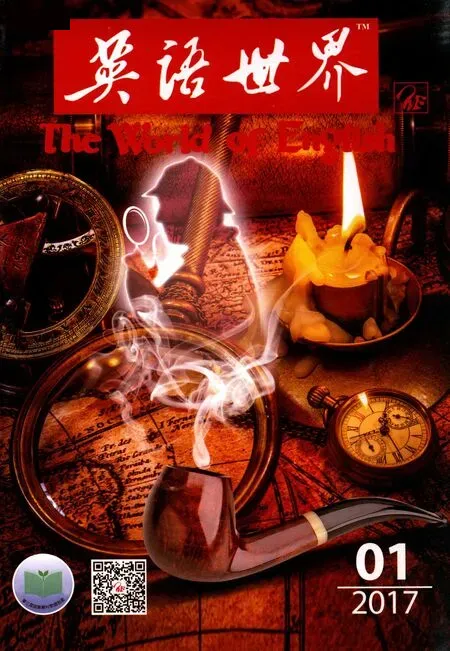Dark Humour
2017-04-06RichardSidaway
Dark Humour

Dark humour: making jokes about things that are usually considered to be serious or sad.
(By Richard Sidaway)
Experts say that laughing is an ability that is speci fi c to human beings. No other animal does it. So why do we?
The purpose of laughter
For most people, laughing is a way of showing we are happy or relieved—we usually laugh with other people present and it helps relax the atmosphere. Another reason for laughter is that it helps us deal with the sensitive area of social morality, or situations which are normally serious, like death, disease or war. This is where humour sometimes gets ‘dark’.
The origins of dark humour
Dark humour is probably as old as human communication itself. One of the fi rst modern examples in English is in the 17th-century writings of Jonathan Swift. In A Modest Proposal, Swift suggests that poor people sell their children as food to the rich. His intention was to make fun of simple suggestions for solving problems such as poverty or overpopulation.
Individual examples
There are several individuals who decided to use humour when faced with their own death. Murderer William Palmer looked at the door under the gallows before his execution in 1855 and asked ‘Are you sure that’s safe?’ Writer Oscar Wilde’s last words as he was dying in a cheap hotel were ‘Either that wallpaper goes or I will.’ Humorist Spike Milligan had the words ‘I told you I was ill’ (in Irish) written on his gravestone.
Anonymous contributions
It is a mystery where some dark humour comes from. Nobody knows who wrote this: ‘We are born naked, wet and hungry. Then things get worse.’ Or how about this piece of graf fi ti to make you feel depressed: ‘Life is a sexually transmitted disease, and it’s 100% fatal.’
Light at the end of the tunnel?
Surprisingly, dark humour can sometimes provide a more positive conclusion to a grim topic. This is what Dorothy Parker wrote in 1925 on the subject of suicide:
Razors pain you;
rivers are damp;
acids stain you;
and drugs cause cramp.
Guns aren’t lawful;
nooses give;
gas smells awful;
Activity 1
Before you read, match the word to a de fi nition.

1.cramp 2. disease 3. gallows 4. gravestone 5. grim 6. noose 7. poverty 8. sensitive
a. a stone to mark where someone is buried
b. a wooden structure for hanging criminals
c. circle of rope which goes round someone’s neck to kill them
d. disorder in the normal functioning of the body
e. painful contraction of a muscle
f. that can easily upset or offend
本系统实现了运输监测网络化、透明化,运输数据多层共享。用户、变压器厂商和运输公司能够共同在线监督变压器当前状态,提高变压器运输质量和预警力度,从而采取有效的预防措施,将进一步提升变压器运输过程的安全系数。
g. the condition of being very poor
h. unpleasant and depressing
Activity 2
Now complete the sentences using words from the text.
1. Although he became very rich, he was born in (____).
2. I think Shakespeare is buried here. Let’s see if we can fi nd his (____).
3. I went for a swim, but after an hour I got (____) in both my legs so I had to come out of the water.
4. In the 18th century you could go to the (____) for stealing bread.
5. Let’s not talk about it any more; it’s a (____) subject.
6. Many people die of heart (____) every year.
7. We were shocked when we heard the (____) news.
8. When the police found the suicide victim he was still hanging with the (____) around his neck.
Activity 3
Put the sentences in the order they come in the text.
1. Some people refuse to take their own death seriously.
2. Dark humour is sometimes a way of commenting on society’s problems.
3. Humans are the only animals that laugh.
4. The origin of dark humour is sometimes unknown.
5. Laughter can be a reaction to dif fi cult situations.
Activity 4
Can you make nouns from the six verbs and adjectives? They are all in the text.
e.g. act = action

Verb or adjective 1. able 2. moral 3.intend 4.poor 5.re fl ect 6. conclude Noun
Activity 5
Do you appreciate dark humour? Why (not)?
Does dark humour exist in your culture?
